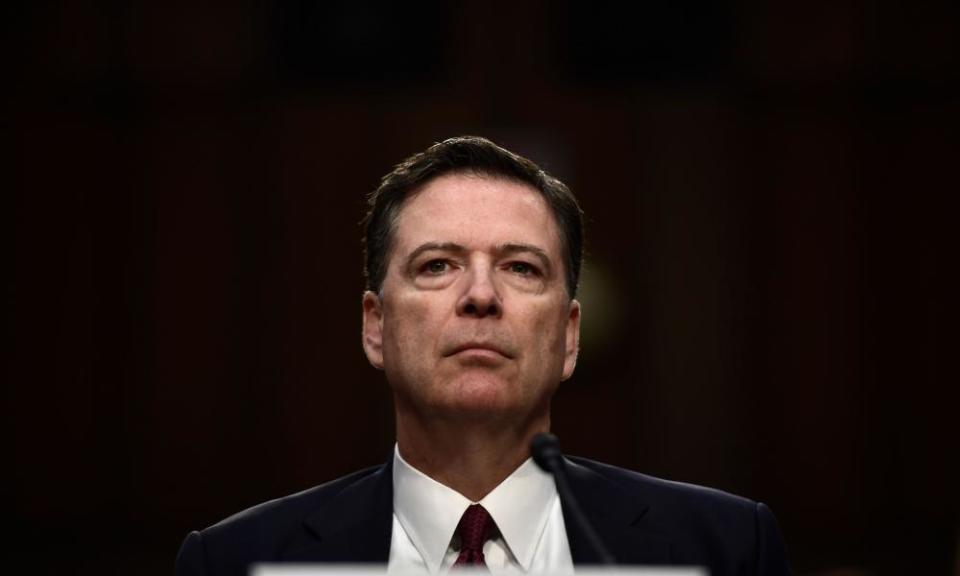Trump calls James Comey’s investigation of Hillary Clinton 'obviously a fix'
President suggests that the former FBI director had decided to exonerate Clinton before the investigation was done, after new documents released by FBI

Donald Trump suggested in tweets early on Wednesday that former FBI director James Comey had decided to spare Hillary Clinton from prosecution “long before investigation was complete” into her government email practices, calling the process “a fix”.
“FBI confirms report that James Comey drafted letter exonerating Crooked Hillary Clinton long before investigation was complete,” Trump tweeted, continuing, “Many people not interviewed, including Clinton herself. Comey stated under oath that he didn’t do this-obviously a fix? Where is Justice Dept?”
Trump was referring to documents released by the FBI on Monday which show that Comey had composed a draft entitled: “Drafts of Director Comey’s July 5, 2016 Statement Regarding Email Server Investigation Part 01 of 01” about two months before the statement was actually made and before Clinton was interviewed.
Trump fired the FBI director in May in what became an increasingly bitter spat between the two men.
In the document, the entire content of the draft is redacted, so it does not indicate what that text said or how it may or may not have differed from the statement Comey ultimately released in July.
Its release follows concerns that Senate judiciary committee members Chuck Grassley and Senator Lindsey Graham raised in August. The pair accused Comey of prematurely deciding that he would issue a statement “exonerating” Clinton.
“Conclusion first, fact-gathering second,” the senators wrote in a letter. “That’s no way to run an investigation.”
Multiple news outlets including CNN and the Washington Post reported before the investigation officially concluded that no charges were expected based on the extent of the interviews and other fact gathering that had already been completed.
“It’s a bipartisan DOJ conceit. The decision is never ‘made’ until the end, even when there’s a 99% chance it is only going to go one way,” tweeted former DoJ spokesman Matthew Miller in response to the senators’ accusations in September.
At a House hearing in 2016, Comey vehemently denied any decision had been made not to charge Clinton before the 2 July interview, but he was not asked at that time when he began to prepare his public statement.
“If colleagues of ours believe I am lying about when I made this decision, please urge them to contact me privately so we can have a conversation about this,” Comey said. “All I can do is tell you again, the decision was made after that because I didn’t know what was going to happen in that interview.”
Ironically, at the time Trump fired Comey in May, he had accused the former FBI director of exactly the opposite thing, claiming that his termination was in part, because he had treated Clinton “unfairly”.

